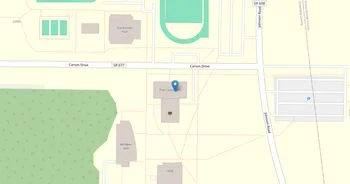Randolph College (RC) : Overview, Courses, Scholarships & Rankings
About Randolph College
The campus includes an art museum with a respected American collection, a rare perk for a small college. Randolph is known for seminar-style learning, close faculty attention, and solid footing in the humanities, sciences, and the arts. Students develop writing and research skills with support from well equipped labs, studios, and a light filled library. Advising, tutoring, counseling, and a hands on career center are easy to find.
Life feels busy yet welcoming. Clubs span theater, music, service, cultural groups, and plenty of time outdoors. The vibe is tight knit and tradition minded, with spirited class customs that stick. Career prep leans practical through internships, faculty mentored projects, and alumni who pick up the phone. Lynchburg adds a walkable downtown, riverfront trails, and chances to work with schools, nonprofits, and local businesses. And that museum doubles as a classroom, so culture isn't an afterthought.
Key Institutional Details
Contact & Profile
Academic & Institutional
Academic Programs & Fields of Study
Randolph College (RC) offers 26 degree programs across 16 major academic fields, graduating approximately 147 students annually. The most popular fields by graduate volume are English (2 programs, 33 graduates), Kinesiology (2 programs, 32 graduates), Biological Sciences (1 programs, 15 graduates), Psychology (1 programs, 11 graduates) and Education (3 programs, 10 graduates). Explore program details, award levels, and graduate demographics below.
English (2 programs, 33 graduates)
English Literature, Creative Writing and Literary Analysis
| Program Name | Graduates | Gender Distribution | Award Levels | CIP Code |
|---|---|---|---|---|
| Creative Writing | 28 |
|
Bachelor's
Master's
|
23.1302 |
| English Language and Literature | 5 |
|
Bachelor's
|
23.0101 |
Kinesiology (2 programs, 32 graduates)
Exercise Science, Sports Medicine and Physical Recreation
| Program Name | Graduates | Gender Distribution | Award Levels | CIP Code |
|---|---|---|---|---|
| Sports, Kinesiology, and Physical Education | 16 |
|
Bachelor's
|
31.0501 |
| Sports Studies | 16 |
|
Master's
|
31.0508 |
Biological Sciences (1 programs, 15 graduates)
Life Sciences, Biotechnology and Biomedical Research
| Program Name | Graduates | Gender Distribution | Award Levels | CIP Code |
|---|---|---|---|---|
| Biology and Biological Sciences | 15 |
|
Bachelor's
|
26.0101 |
Psychology (1 programs, 11 graduates)
Psychological Sciences, Mental Health and Behavioral Studies
| Program Name | Graduates | Gender Distribution | Award Levels | CIP Code |
|---|---|---|---|---|
| General Psychology | 11 |
|
Bachelor's
|
42.0101 |
Education (3 programs, 10 graduates)
Educational Sciences, Teaching Methods and Pedagogy
| Program Name | Graduates | Gender Distribution | Award Levels | CIP Code |
|---|---|---|---|---|
| Elementary Education | 5 |
|
Bachelor's
|
13.1202 |
| Curriculum and Instruction | 4 |
|
Master's
|
13.0301 |
| Special Education Teaching | 1 |
|
Master's
|
13.1001 |
Business (1 programs, 9 graduates)
Business Administration, Marketing and Entrepreneurship
| Program Name | Graduates | Gender Distribution | Award Levels | CIP Code |
|---|---|---|---|---|
| Business Administration | 9 |
|
Bachelor's
|
52.0101 |
History (1 programs, 8 graduates)
Historical Studies, Cultural Heritage and Archaeological Research
| Program Name | Graduates | Gender Distribution | Award Levels | CIP Code |
|---|---|---|---|---|
| History | 8 |
|
Bachelor's
|
54.0101 |
Interdisciplinary (2 programs, 5 graduates)
Cross-Disciplinary Studies and Integrated Research Programs
| Program Name | Graduates | Gender Distribution | Award Levels | CIP Code |
|---|---|---|---|---|
| Mathematics and Computer Science | 4 |
|
Bachelor's
|
30.0801 |
| Global Studies | 1 |
|
Bachelor's
|
30.2001 |
Social Sciences (3 programs, 5 graduates)
Sociology, Anthropology and Political Science Studies
| Program Name | Graduates | Gender Distribution | Award Levels | CIP Code |
|---|---|---|---|---|
| Political Science and Government | 3 |
|
Bachelor's
|
45.1001 |
| Economics | 1 |
|
Bachelor's
|
45.0601 |
| Sociology | 1 |
|
Bachelor's
|
45.1101 |
Natural Resources (2 programs, 4 graduates)
Environmental Science and Natural Resource Management
| Program Name | Graduates | Gender Distribution | Award Levels | CIP Code |
|---|---|---|---|---|
| Environmental Studies | 2 |
|
Bachelor's
|
03.0103 |
| Environmental Science | 2 |
|
Bachelor's
|
03.0104 |
Admission Requirements & Test Scores
Comprehensive overview of admission criteria, standardized test score ranges, and application requirements for prospective students at Randolph College (RC).
Application Requirements
Data based on IPEDS for 2022-2023 academic year. Test score ranges represent the middle 50% of admitted students (25th-75th percentile). Requirements may vary by program.
Tuition, Fees & Estimated Costs
Overview of tuition rates, housing, and other annual education expenses for undergraduate and graduate students
Financial Aid & Student Support
Summary of scholarships, grants, student loans, and financial aid statistics for undergraduate students
Student Success Metrics
Graduation rates and post-graduation earnings to help assess student outcomes and long-term value of education.
Loan Burden & Repayment Outcomes
Breakdown of loan repayment rates and student debt levels by income and dependency status.
Frequently Asked Questions
Find answers to the most common questions about Randolph College (RC)
How much does it cost to attend Randolph College (RC)?
The annual tuition at Randolph College (RC) is $29,010 for in-state students. When including room and board, books, and other expenses, the total estimated cost is approximately $45,040 for in-state students. Additional costs include room and board $11,890 (on-campus) and books and supplies $1,240.
Data based on IPEDS program completions for 2022-2023 academic year. Tuition and cost estimates are approximate and may not include all fees, personal expenses, or transportation costs.
What academic programs and degree levels does Randolph College offer?
Randolph College (RC) offers 26 academic programs across 16 major fields of study, with available degree levels: Bachelor's, Postbac Cert., Master's.
Most popular program areas include:
- English Literature, Creative Writing and Literary Analysis (2 programs)
- Exercise Science, Sports Medicine and Physical Recreation (2 programs)
- Life Sciences, Biotechnology and Biomedical Research (1 programs)
- Psychological Sciences, Mental Health and Behavioral Studies (1 programs)
- Educational Sciences, Teaching Methods and Pedagogy (3 programs)
Data based on IPEDS program completions for 2023-2024 academic year. Numbers reflect programs where students graduated, not all offered programs.
What is the acceptance rate for Randolph College?
Randolph College (RC) has an 94.9% acceptance rate and a 10.9% yield rate, making it moderately selective.
Admission statistics breakdown:
- Total applicants: 1,935
- Students admitted: 1,837
- Students enrolled: 200
Data based on IPEDS for 2022-2023 academic year. Admission statistics may vary by program and application cycle.
What financial aid and scholarships are available at Randolph College?
Randolph College (RC) provides financial aid to 31% of first-time, full-time students, with average grants of $22,982 and average loans of $7,766.
Average financial aid amounts by type:
- Pell grants: $5,391
- State/Local grants: $4,518
- Institutional grants: $15,460
- Federal loans: $5,808
The university supports 147 students with grants and 119 students with loans annually.
Data based on IPEDS for 2022-2023 academic year. Financial aid amounts and percentages may vary by program, enrollment status, and individual circumstances.
What is the average salary for Randolph College graduates?
Randolph College (RC) graduates earn a median salary of $39,122 after 6 years and $53,409 after 10 years.
The salary range 10 years after graduation spans from $32,764 (25th percentile) to $78,006 (75th percentile).
Data based on IPEDS for 2022-2023 academic year. Salary data reflects graduates who received federal financial aid (approximately 60% of all graduates). Actual earnings may vary significantly based on program, location, and individual circumstances.
Related Universities




Found something useful? Help others discover it too! Share with friends, on social media, or save for later - every share helps someone find the information they need.